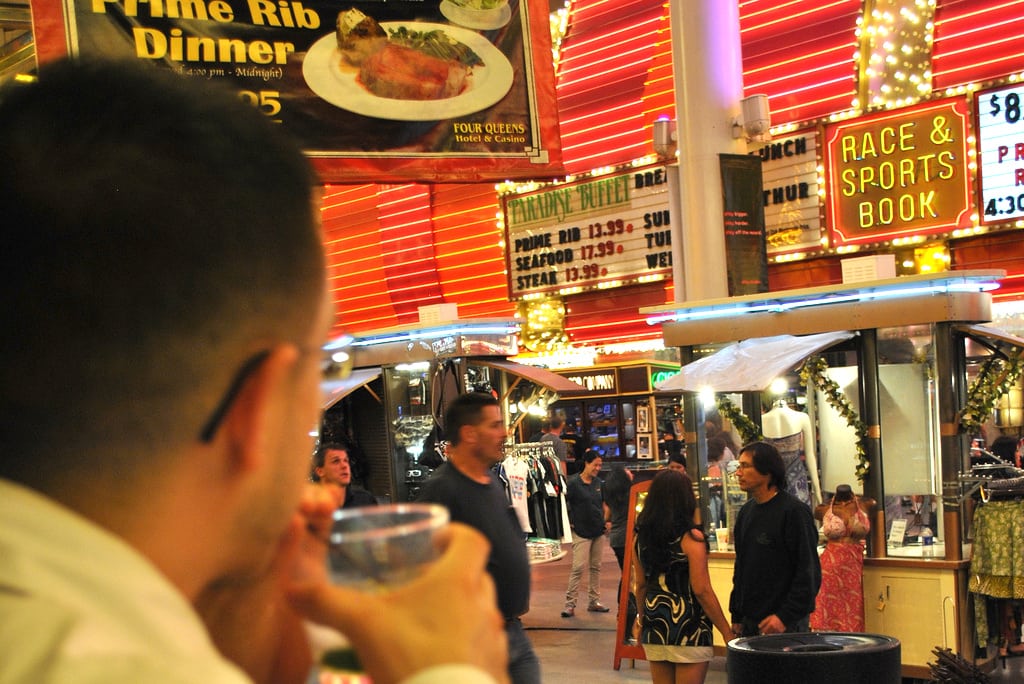Skift Take
What happens in Vegas, stays in Vegas — except now sports betting, as other states look to swoop in and take their share of the multibillion market. But guess what? Vegas will survive.
Many U.S. casinos and gambling advocates are praising the United States Supreme Court’s decision on Monday to strike down a decades-old law that banned sports betting outside of Nevada. Since other states might now offer sports betting, it raised question about how much of a hit Nevada tourism, specifically Las Vegas, might take.
But sports betting is still a marginal business compared to overall gambling revenue in Nevada, the only U.S. state with an established market for the activity.
Some $4.9 billion, an all-time record high, was bet on sports in 2017 in Nevada destinations such as Las Vegas, home to the iconic Las Vegas Strip casinos. Sports bets have set all-time records for the past eight years, according to Michael Lawton, senior research analyst for the Nevada Gaming Control Board.
Nevada sports book operators won $248.8 million from sports betters last year or about 5 percent of what was bet. Sports betting was only 2.5 percent of the total $11.6 billion gambling revenue for the state in 2017.
The court’s decision shouldn’t be viewed as a game-changer, at least not immediately, said Lawton. “The way the sports betting model works, it’s a small margin business,” he said. “I think a lot of people don’t understand that. The casinos didn’t necessarily win what people won.”
Lawton said calculating the economic impact of sports betting isn’t clear-cut. “Sports betters do more than just bet on sports such as stay in hotels and visit other attractions,” he said.
Many Nevada locales are also considering high tax rates for sports betting, said Lawton. “Sports betting isn’t going to solve everyone’s problems,” he said. “I don’t think the ruling will be negative to Nevada’s gaming industry.”
The American Gaming Association, a Washington, D.C.-based group that represents the $240 billion U.S. casino industry, estimates that Americans illegally bet nearly $150 billion on sports each year. Some $58 billion was bet on National Football League and college football games during the 2017 season but $56 billion of that was bet illegally.
MGM Resorts International, which as a sports book at MGM Grand in Las Vegas, said it supports the court’s decision. “Having spent decades building trust with regulators, successfully operating sports books in Nevada, and hosting the world’s leading sporting events, MGM Resorts International is extremely well positioned for a post-PASPA environment,” the company said in a statement.
The Las Vegas Convention and Visitors Authority, the city’s tourism board, said it couldn’t speculate on the potential impact of what the court’s decision could mean for the destination.
The organization’s 2017 visitor profile study show 74 percent of Las Vegas visitors gambled in the destination in 2017, up from 71 percent in 2013. But the average trip gambling budget dropped 12 percent from 2016 to 2017 ($619 to $541, respectively).
Las Vegas will likely maintain its position as the center of the country’s sports betting and wider gambling industry despite the court’s decision. Some 44 other states have legalized commercial, tribal, and racetrack gambling and sports betting could give them another boost, but many travelers will still want the full Las Vegas experience.
The Daily Newsletter
Our daily coverage of the global travel industry. Written by editors and analysts from across Skift’s brands.
Have a confidential tip for Skift? Get in touch
Tags: casinos, gaming, las vegas, tourism
Photo credit: The U.S. Supreme Court paved the way this week for more states to legalize sports betting. Pictured is a sports book at the Paradise Buffet at the Fremont Hotel & Casino in Las Vegas. katesheets / Flickr
